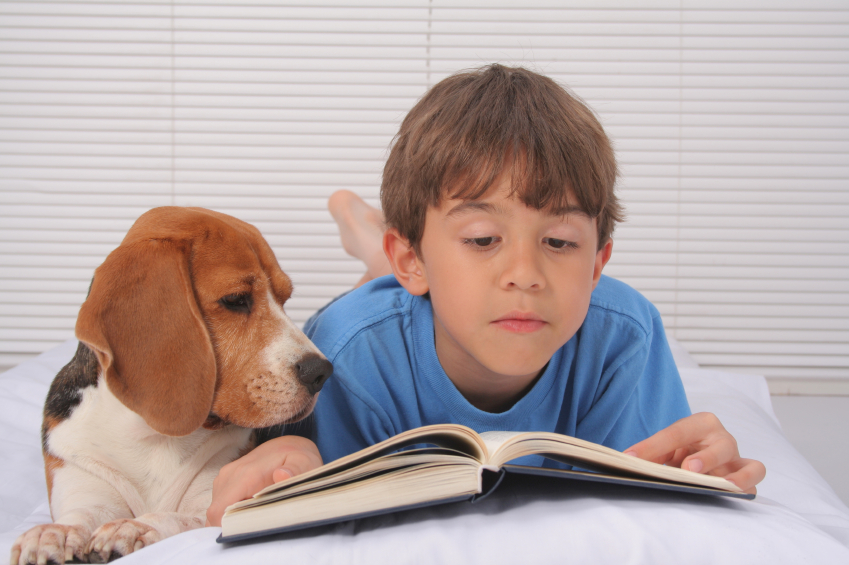
We all know that dogs can be great companions or cuddle buddies. But it turns out that we have another reason to celebrate man’s best friend–they’re good for kids’ report cards, too! Now before you scoff, consider the following:
A Minnesota pilot project called PAWSitive Readers finds that trained therapy dogs helped 10 of 14 grade-school participants improve their reading skills by one grade level. Additionally, a University of California study showed that children who read to the family dog improved their ability by an average of 12 percent.
Michael Amiri, coauthor of the children’s book Shellie, the Magical dog, discusses five reasons why dogs help kids learn to love reading:
• No embarrassment: “Most of us have memories of reading out loud in class,” he says. “Though we may have been proficient readers, the fear of stumbling on a word in front of everyone was a constant source of anxiety.” Dogs are excellent for unconditional, nonjudgmental love; they won’t laugh if and when mistakes happen.
• Confidence boosters: “I never had a dog while growing up, which is too bad because I think I would have had an easier time gaining self-confidence,” says Amiri. As an adult, he discovered the many benefits of dogs through he and his wife Lisa’s very special Maltese, Shellie. She’s often the center of attention in their community at pet-friendly restaurants, where she laps her water out of a martini glass. And she has a full-time job as the greeter at Linda’s hair and nail salon. “If a little dog can give me, a grown man, more confidence, imagine what it can do for kids,” he says.
• Polite listeners: Like humans, dogs are social creatures and most enjoy the sound of a calm voice speaking to them. Many – except perhaps the most energetic breeds – seem to enjoy curling up on a rug and listening to a story being read aloud. They don’t interrupt (except for the occasional ear scratch) and they often show appreciation for the attention.
• A fun approach to schoolwork: Too often, when children think of studying, they think of time spent hunched over a desk struggling alone to work out problems and memorize lists. Interacting with a lovable, fuzzy friend for an hour of homework is an appealing alternative.
• Win-win: A canine-student reading program is a great way to help service dogs-in-training learn patience and discipline. Dogs are trained to help veterans suffering post-traumatic stress disorder, the blind, and people who use wheelchairs, among others. These dogs-in-training help children, while children improve a dog’s service abilities.
